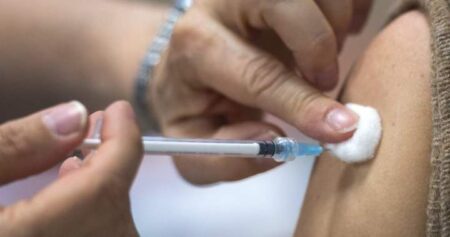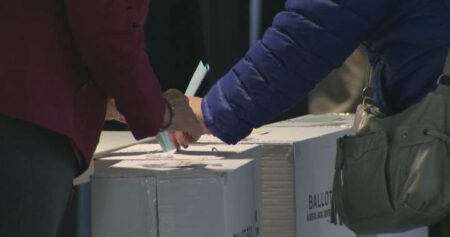The Canadian man who died while in custody of U.S. Immigration and Customs Enforcement in Florida had several health issues in the weeks before his death last month, the agency says, and at one point was found to have not eaten in “a while.”
The details on what U.S. officials say led up to the death of 49-year-old Johnny Noviello were included in a report released by ICE on Wednesday. The agency is required by U.S. law to issue such reports within 90 days of a detainee’s death.
Noviello, a Canadian citizen and U.S. permanent resident, was arrested by ICE agents in Daytona Beach, Florida, on May 15 and was facing removal from the U.S. due to a prior conviction on drug charges. He was transferred to the Federal Detention Center in Miami four days after his arrest.
He died more than a month later, on June 23, after he was found unresponsive. A cause of death is not listed in the report.
According to the report, on May 16 — a day after his arrest — Noviello told officials he was suffering from “unspecified convulsions” and hypertension, and was prescribed anticonvulsant and blood pressure medications.
That same day, a nurse confirmed those diagnoses and also documented “slightly elevated blood pressure, high body mass index” and Noviello’s medication list, the report says. The nurse also referred Noviello to a behavioural health provider.

Get daily National news
Get the day’s top news, political, economic, and current affairs headlines, delivered to your inbox once a day.
On the same day of Noviello’s transfer to Miami, the behavioural health provider recommended that Noviello should receive a medical evaluation and a referral to mental health care “if needed.”
After his arrival at the Federal Detention Center, on May 20, officials noted Noviello had normal vital signs “except for elevated heart rate and abnormal blood pressure.”
Ten days later, the report says Noviello refused a full physical exam and health history check.
On June 8, according to the report, Noviello was evaluated by a health-care provider “at the request of a unit officer and health services administrator.”
“The provider requested a mental health referral and documented Mr. Noviello reported feeling sad and depressed, and refused to go to the medical clinic for an evaluation,” the report says.
The next day, another provider found Noviello “maintained poor personal hygiene and stated he had not eaten in ‘a while,’” the report continues. Noviello’s vitals were found to be normal, and the provider “discussed the importance of self-hygiene and proper diet.”
Noviello was then found unresponsive by staff on June 23 at 12:54 p.m. local time.
The report says medical staff arrived seven minutes later, at 1:01 p.m., and began administering CPR and used a defibrillator to try and revive Noviello, while 911 was called.
Medical staff noted his blood glucose levels were well below normal and that Noviello had no pulse, respirations, blood pressure, or oxygen flow.
Miami firefighters arrived on the scene at 1:09 p.m. and performed advanced cardiac life-support measures for 30 minutes with no response, the report says. Noviello was declared dead at 1:36 p.m.
At the time of his death, ICE said it provided notification of the incident to the Canadian consulate by telephone.
Global Affairs Canada said at the time it was “aware of the death of a Canadian citizen in Florida” and was in contact with U.S. authorities. It has not released any further information, citing privacy considerations.
Noviello was sentenced to 12 months in prison in October 2023 after pleading guilty to selling opioid painkillers out of their Daytona Beach used auto dealership. Court documents alleged Noviello got the pills by having associates fill fake prescriptions.
The ICE report notes Noviello came to the U.S. in 1988 and became a conditional resident that same year. He was granted lawful permanent resident status in 1991.
U.S. President Donald Trump’s administration has instituted a crackdown focused on removing immigrants convicted of crimes, particularly drug charges and violent offences like murder and sexual assault.
Read the full article here

















